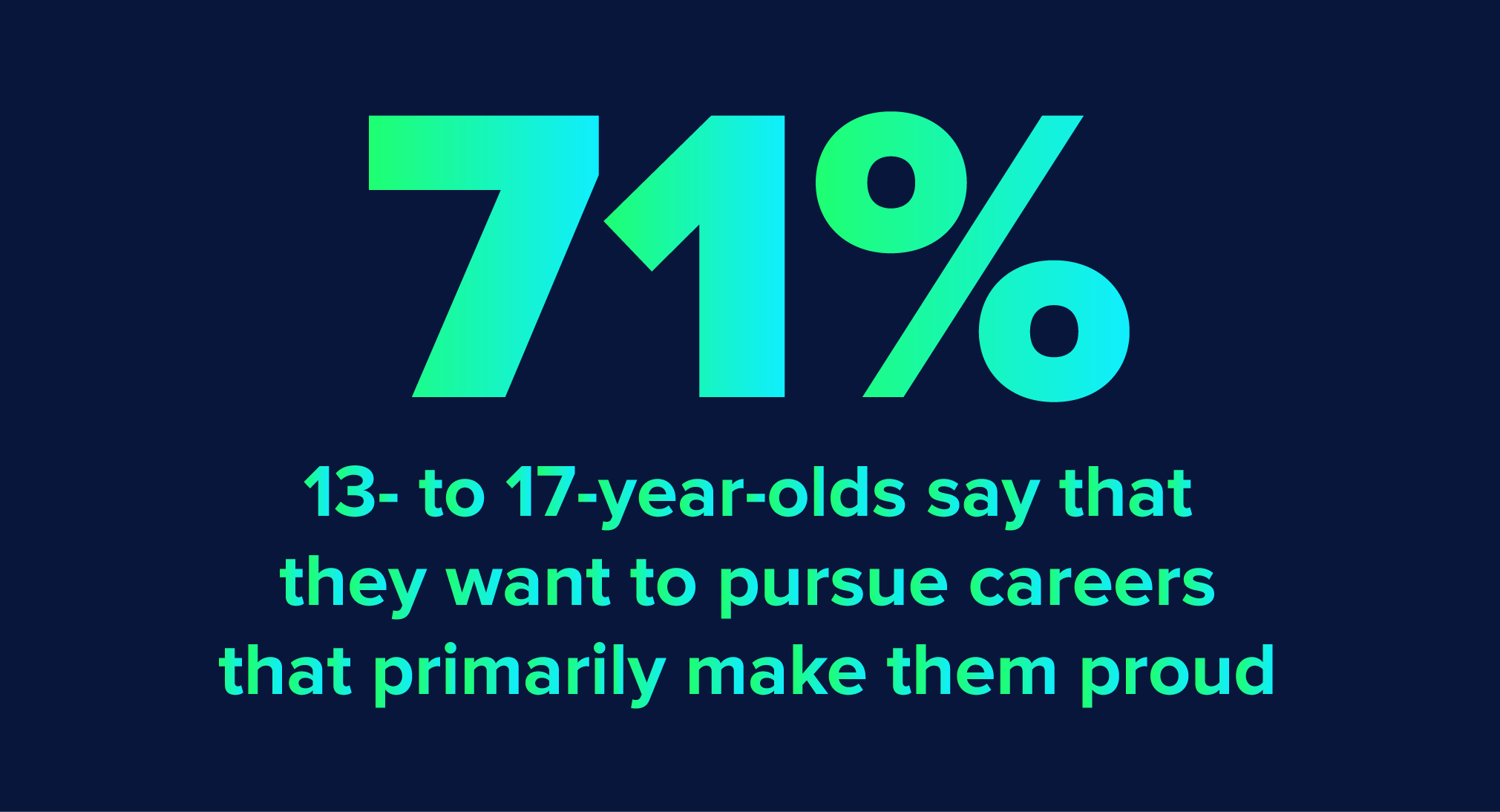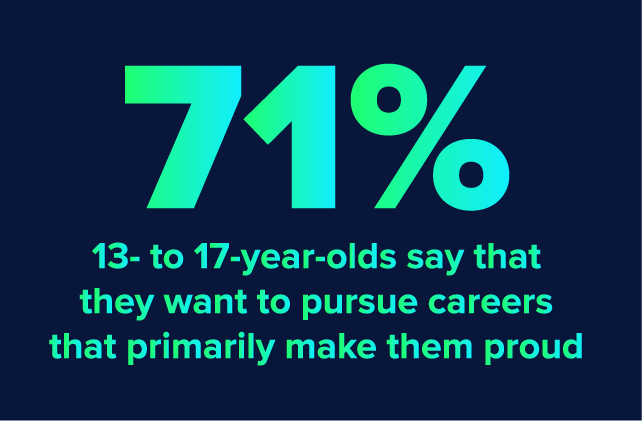According to our recent research, a full quarter of Gen Z respondents cited being happy as their number one goal in life; nearly double the number who cited being financially secure as the top goal.
Financial security seems to be a contentious topic for Gen Z, who have watched older relatives and parents struggle to keep up despite their best efforts. For example, Gen X — two generations prior — is said to have the highest average debt burden of any generation, with their debts increasing by 10% between 2016 and 2019. Going to college, for many of Gen Z’s parents and grandparents, was seen to be the best pathway to financial security, but didn’t necessarily gain them wealth. In spite of that, we know that Gen Z watched their parents work hard; 83% of teens and 75% of young adults we surveyed reported that their parents worked hard to give them opportunities, and similar numbers said their parents made sacrifices for them. One of the disconnects is that today’s young people have watched what once seemed to be a failsafe connection between college and a healthy paycheck disintegrate.
In the same vein, just 14% of our teen and young adult respondents cited owning a home as one of their top three goals. Home ownership was for so long seen as a hallmark of success for previous generations, but it’s no wonder views have changed following bouts of housing market instability and mass foreclosures. As a result, younger generations seem to prefer renting to buying. At the risk of oversimplifying things; if you were to zoom out and look at the trends of the last decade, you could be forgiven for thinking that Gen Z had sort of…well, given up…on the idea of accumulating wealth in favor of building emotional fortitude and having fulfilling experiences. (And in some cases, buying transient things…I’m looking at you, male teenage survey respondent in the Midwest who reported that you spent a whole year’s savings on a Nintendo Switch even though it didn’t go on sale.)
In truth, some of this attitude about shifting priorities has been summed up perfectly by our respondents:
“My parents probably were concerned with graduating college, getting a good job, becoming financially stable and starting a family. While those are admirable goals, I feel like mine are very different. I’d rather have my dream job than something that pays better,” shared a young adult respondent.
With permanence –of home, finances and beyond– seemingly a less important part of Gen Z’s goal set, one can understand how this generation may be seeking less material stability and more emotional stability. But we wanted to know: if financial security isn’t a top goal, then how does Gen Z make connections between happiness and career? Our Gen Z respondents report that, on a scale of 1 to 10, they only rate themselves a 5.8 in terms of alignment with their parents around being career oriented. Respondents told us that they want to pursue careers that primarily make them feel good (71% of 13- to 17-year-olds and 67% of 18- to 25-year-olds), that make them proud (68% and 60%), and that allow them to help others (66% and 54%). Just 62% of 13- to 17-year-olds and 56% of 18- to 25-year-olds define a successful career as one that makes them a lot of money.
For purposes of helping to provide guidance to Gen Z, we know this much: over half of them (58% of our teen respondents and 55% of young adult respondents) plan to make, or are making, their own pathways for education & career. Understanding what their priorities are (and aren’t) is, and will continue to be, a critical part of offering guidance and support as they forge and build those paths. If you’re looking for ways to guide young people to new and less traditional pathways, check out our white paper, Accepting That College Is No Longer a Panacea.




